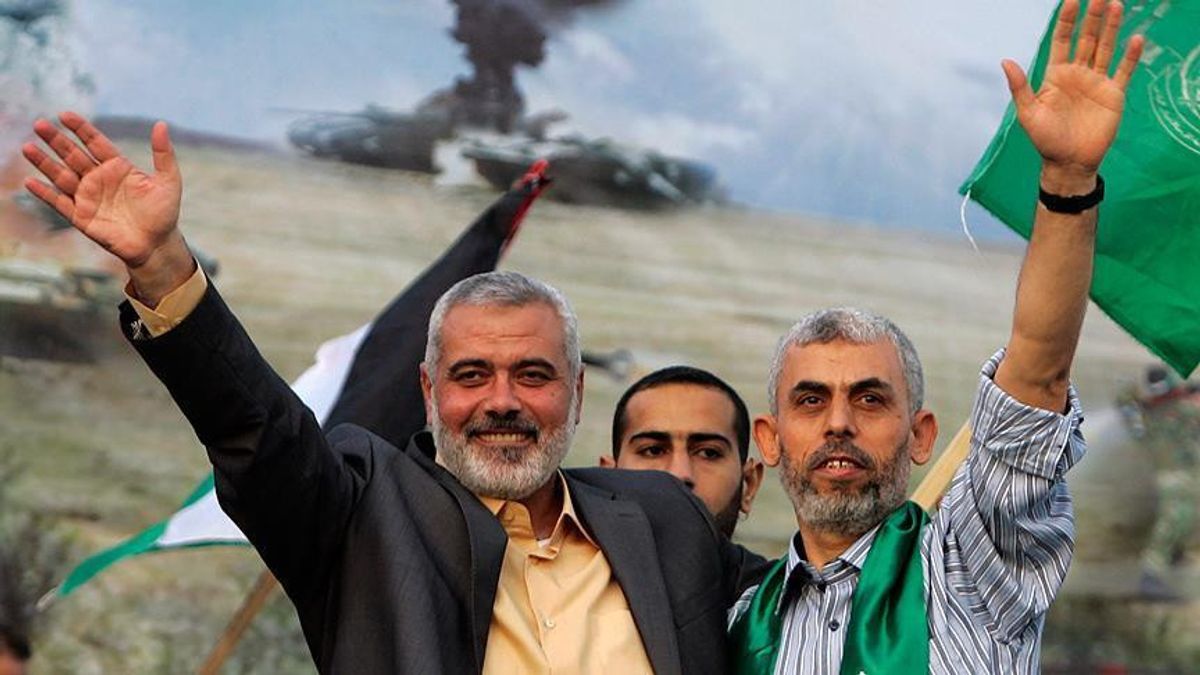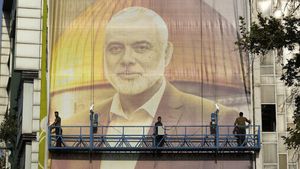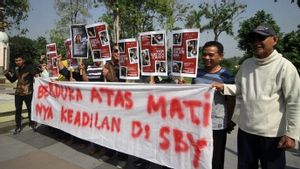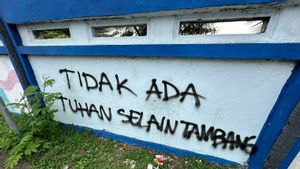It is believed that Hamas will have no trouble finding a replacement for Ismail Haniyeh, who was killed where he was staying in Tehran, Iran. Despite having succeeded in killing a number of Hamas leaders, Israel is still hunting for several important names in the organization they consider terrorists.
According to Iranian media reports, an airstrike destroyed a veteran's home in Tehran, where Haniyeh settled, on Wednesday (31/7/2024) at 02.00 local time. However, according to a source quoted by The Jerusalem Post, Haniyeh died as a result of a bomb explosion placed in his room last June.
Haniyeh, 62, is called the senior leader of Hamas and plays an important role in the ceasefire efforts in the Gaza Strip. Haniyeh himself was in Iran to attend the inauguration of Iran's new president, Masoud Pezeshkian. He replaced Ebrahim Raisi who died in a helicopter crash last May.
Until now Israel has not commented on Haniyeh's death, but for a long time they have vowed to destroy Hamas to its roots following the October 7, 2023 attack on southern Israel. A similar attitude was taken by the United States, Israel's strongest ally, who also considers Hamas a terrorist group.
In December last year, Israeli Prime Minister Benjamin Netanyahu said the war in the Gaza Strip was far from over.
"We will not stop. We will continue to fight," Netanyahu said in a meeting with members of parliament from the Likud Party, quoted by Antara.
"We will intensify the fighting in the next few days and the fighting will take a long time and will not be over," he continued.
Since the war between Israel and Hamas in Gaza which took place in October last year, six Hamas leaders have been killed, including the last Ismail Haniyeh.
On January 2, 2024, one of Hamas' most senior figures, Saleh Al-Arouri was killed following a drone strike in Beirus, Lebanon. He is in Lebanon in order to coordinate Hamas with Hezbollah and their supporters in Iran, after some time being based in Turkey.
Lebanon condemned the attack, and called it a violation of sovereignty.
On March 10, Israel launched an airstrike in the city of Nuseirat in the central Gaza Strip targeting Marwan Issa, deputy chief of Hamas military operations.
Israel also announced the success of killing Hamas military winger Muhammad Defif and Brigade Commander Khan Younis Hamas, Rafa "a Salameh" on July 13. Israel regards Def as one of the two masterminds behind the Hamas attack on October 7.
Def survived at least six previous assassination attempts, until they were finally announced dead in a statement reported by Israel on August 1. Meanwhile, Salameh played an important war in operations such as the kidnapping of Israeli soldiers Gilad Shalit on the border in 2006.
In 2016, Salameh took over the Khan Younis Brigade from Mohammed Sinwar, the brother of the Hamas leader in Gaza, Yahya Sinwar.
In addition, Israel also killed Mohammad Reza Zahedi, senior commander of Iran's Islamic Revolutionary Guard Corps (IRGC), in an airstrike in Damascus on April 1. Zahedi is recently believed to have served as head of the Quds Forces in Syria and Lebanon, a role that made him the main coordinator between Tehran and Hezbollah.
After Haniyeh died, who would continue his struggle became a question mark. Israel's National Security Research Institute at Tel Aviv University said that although Hamas leader Ismail Haniyeh was physically dead, this would not have a significant impact on the group's political and military capabilities nor on internal and even Palestinian political organizations in general.
According to research institute THink Thank, the killing of Haniyeh will not change anything in the policy (Hamas leader in Gaza, Yahya) Sinwar in general, and negotiations on the release of prisoners in particular.
"It's not a problem to find a replacement for Haniyeh, which is certain if there is an 'exchange agreement', there will be many talented replacements for her," said Fdd.org.
Although they have succeeded in killing several high-ranking Hamas officials, at least there are still three frontmen of the organization targeted by Israel. Quoting the New York Times, several names were named as candidates to replace Haniyeh, including Yahya Sinwar, Khaled Meshal, and Khalil Al-Hayya.
Yahya Sinwar, who is said to be the busiest, will replace Haniyeh. He was one of the founders of Hamas in the late 1980s when there was a Palestinian uprising against the Israeli government.
Sinwar was several times arrested by Israeli authorities, and spent more than 20 years in Israeli prison until he was finally released in a prisoner swap in 2011. Six years on the counter, Sinwar was appointed Hamas leader in Gaza.
Israeli officials say he is one of the leaders behind the October 7 attack with Mohammed Def. Sinwar is currently believed to be hiding in the Gaza Strip tunnel.
A number of Hamas leaders in Gaza, including Sinwar, are considered more radical than Haniyeh. Haniyeh's death, regarded as pragmatic resistance, will make the ceasefire much more difficult to achieve, said Hugh Lovatt, senior researcher at the European Foreign Relations Council.
Meanwhile, Khaled Meshal was a former political leader Hamas born near the city of Ramallah, the West Bank. Meshal became the leader of the Hamas political office in 1996. Two years later, Israeli agents injected him with poison that was working slowly in Jordan, putting him in a coma. But Meshal survived by the bidder that Israel provided as part of a diplomatic deal with Jordan.
He spent his career moving from one Arab country to another, living in Kuwait, Jordan, Qatar, and Syria. When he resigned as head of the diplomatic office, he was replaced by Haniyeh. However, Meshal remains a top official in Hamas.
Finally, the name who is said to be leading Hamas is Khalil Al-Hayya. He now lives in exile and has been a Hamas official for decades. When Al-Hayya was the representative of Sinwar.
SEE ALSO:
He survived Israel's 2007 assassination attempt, when airstrikes at his home in Gaza killed his family members while he was not there. After Ismail Haniyeh was killed, Al-Hayya insisted Hamas would not stop their resistance.
"Hamas and the Palestinian people will not stop the resistance movement," wrote Al-Hayya, quoted by the Jerusalem Post.
"The resistance vowed to escape this aggression, and the Zionist entity deserves to pay a heavy price for this crime," he stressed.
The English, Chinese, Japanese, Arabic, and French versions are automatically generated by the AI. So there may still be inaccuracies in translating, please always see Indonesian as our main language. (system supported by DigitalSiber.id)













